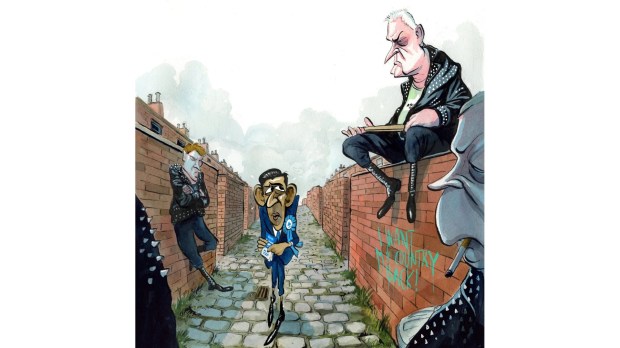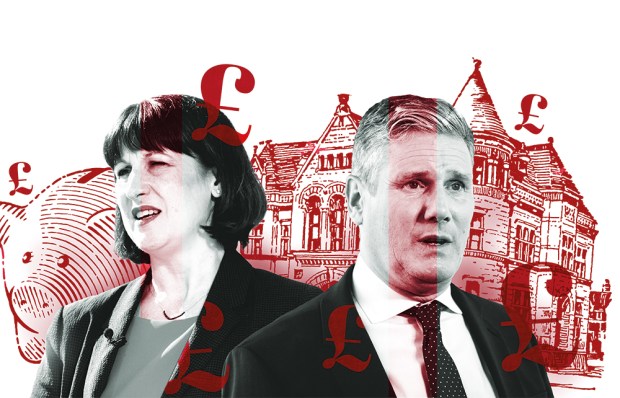The SNP’s determination to push on with its draconian Hate Crime Bill has put it on the wrong side of Scottish public opinion. A new poll indicates popular unease with plans to criminalise speech on everything from religion to ‘transgender identity’ if it is deemed ‘likely that hatred would be stirred up’. The Savanta ComRes poll of 1,008 Scottish adults found both generalised endorsement of classical liberal precepts such as free expression, open debate and the absence of a right not to be offended, as well as more specific concerns about the Bill itself.
The headline findings are:
- 87 per cent of respondents agreed that free speech was an ‘important right’
- 73 per cent said disagreement was not an indication of hatred
- 64 per cent affirmed the view that people today are ‘too quick to shut down debate’
- 63 per cent believe debates and disagreements ‘benefit society’
- 64 per cent say only ‘words that incite violence’ should be criminalised, compared to 29 per cent who want to see ‘offensive’ speech proscribed
The Hate Crime Bill creates an offence of ‘stirring up hatred’ based on a raft of protected characteristics: ‘race, colour, nationality including citizenship, or ethnic or national origins… age, disability, religion or, in the case of a social or cultural group, perceived religious affiliation, sexual orientation, transgender identity, variations in sex characteristics’.
Unlike the Racial and Religious Hatred Act 2006, which applies in England and Wales, the accused need not have intended to stir up hatred to be prosecuted, and can break the law by engaging in ‘threatening’, ‘abusive’, or, in the case of race, ‘insulting’ behaviour or communications, whereas the 2006 legislation requires intent and covers only ‘threatening’ acts. Scots evidently prefer the Westminster approach to these matters, with 69 per cent saying intent is a necessary component of stirring up hatred.
Forty-eight per cent said it should not be a crime to say ‘someone born biologically male cannot become a woman’, compared to 21 per cent who wished to see that viewpoint prosecuted. By a margin of 41 per cent to 21 per cent, respondents wanted to see a free-speech clause to permit disagreement with trans rights. A further 51 per cent told pollsters it should not be a criminal offence to oppose gay marriage.
The poll, which was commissioned by the Free to Disagree campaign, is encouraging. But support for general statements about free speech – and even opposition to specific parts of the Bill – do not necessarily translate into electoral consequences for the SNP. There are no votes in freedom, only in taking it away.
Nor will Nicola Sturgeon or her justice secretary Humza Yousaf be especially bothered by the views of Scots, a people they seemingly deem so riddled with prejudice that they believe one of the most authoritarian speech laws in the democratic world is needed to police their every bile-tinged word and deed. These are, after all, the pair who oversaw a notorious advertising campaign addressing the public as ‘Dear bigots’ and ‘Dear transphobes’. Insular and illiberal elites are not unique to Scotland, but it seems odd that a political party rooted in their perceived moral superiority (of Scotland over England) spends so much time trying to improve us.
Nationalists are often most scathing about their own country: its failure to live up to their standards spoils all that magical thinking about noble peoples forged in common oppression. Every time they look at Scotland, they must confront the dread sight of a nation not all that different to other nations, alike in virtue and vice, potential and pitfalls. Just another country.
Scotland may not be special but nor is it the den of intolerance imagined by party leaders. The SNP has ruled over the Scots for 13 years. You’d think by now they’d have grown to like us.
Got something to add? Join the discussion and comment below.
Get 10 issues for just $10
Subscribe to The Spectator Australia today for the next 10 magazine issues, plus full online access, for just $10.



















Comments
Don't miss out
Join the conversation with other Spectator Australia readers. Subscribe to leave a comment.
SUBSCRIBEAlready a subscriber? Log in